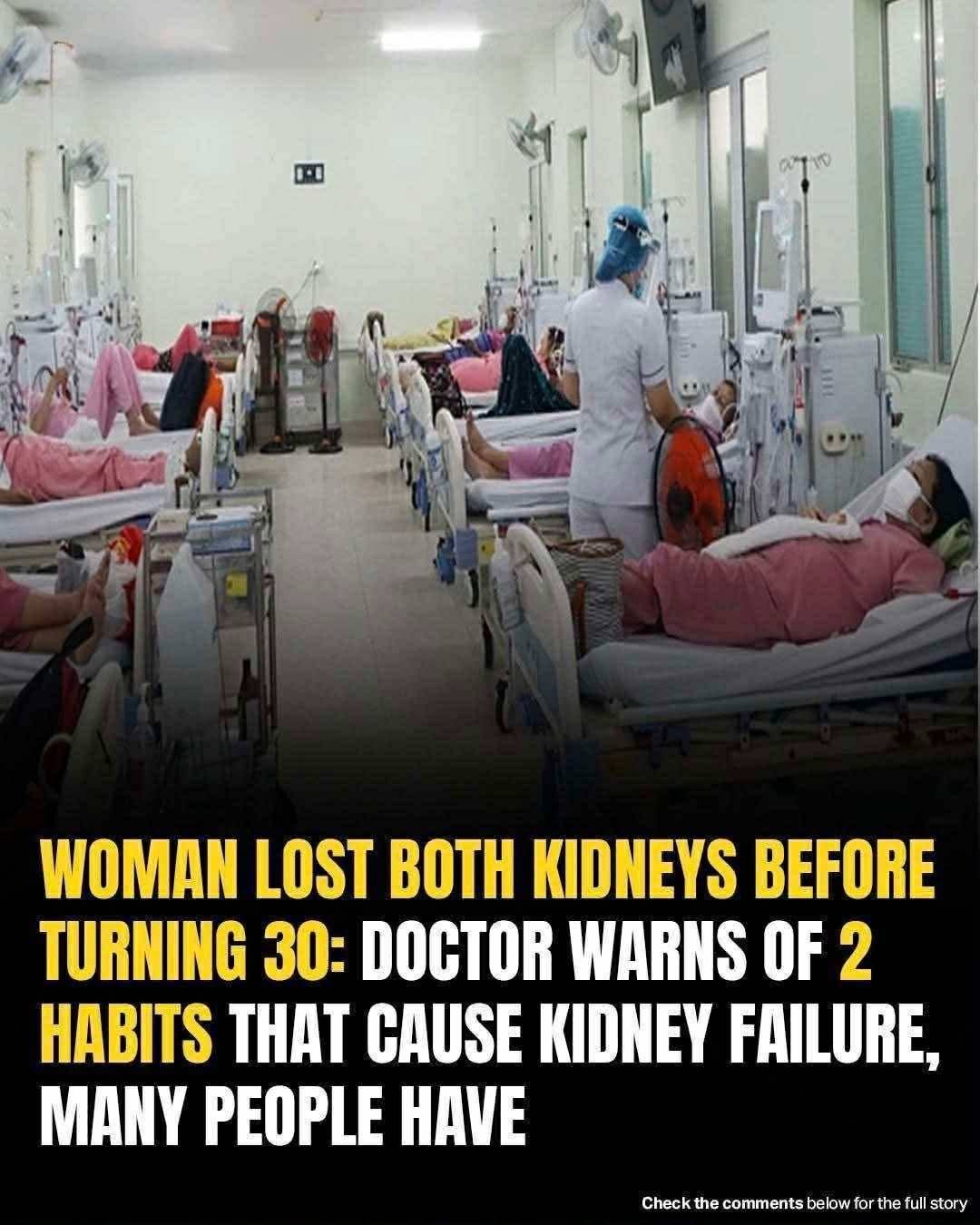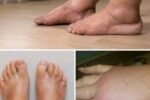Why Kidney Problems Are Affecting Young People—and What You Can Do to Stay Safe 💧

Once thought of as a health issue mainly affecting older adults, kidney failure is now quietly showing up in younger people—even those in their 20s and 30s. Health experts across the globe are concerned by this change and are urging the younger generation to take better care of their kidneys before it’s too late.
So what’s really going on? And what can you do to protect yourself or your loved ones?
Let’s break it down in a simple and helpful way.
What Is Kidney Failure, and Why Should You Care?
Your kidneys are two bean-shaped organs located on either side of your spine. Their main job is to filter out waste and excess fluids from the blood, help control blood pressure, balance minerals, and even keep your bones healthy.
Kidney failure happens when these hardworking organs can no longer do their job. In its final stage—called end-stage kidney disease—you’ll need either dialysis (a machine that filters your blood) or a kidney transplant to stay alive.
The scary part? It often develops slowly and quietly over time, and by the time symptoms show, a lot of damage has already been done.
Why Is This Happening to Young People Now?
Health researchers have noticed that more young adults are being diagnosed with kidney failure in recent years. One case in Southeast Asia that drew a lot of attention was a young actress under 30 who found herself needing dialysis. While her story made headlines, she’s not alone.
Doctors believe the rise in kidney problems among the youth is mostly linked to everyday lifestyle habits—two in particular.
1. Diets That Are Too High in Protein and Processed Foods 🍗🥤
Many young adults today are focused on fitness goals like muscle building or fast weight loss. While that sounds healthy at first, the problem begins when people rely too heavily on protein powders, meat-heavy diets, and processed snacks.
High-protein diets, especially from artificial supplements, can stress the kidneys over time. Your kidneys work harder to process extra urea and uric acid—waste products from protein breakdown.
At the same time, processed foods loaded with salt, sugar, and preservatives can damage your kidneys even more.
One 2020 study from the Clinical Journal of the American Society of Nephrology found that diets high in sodium and low in potassium are strongly linked to kidney decline—even in people without any prior health issues.
2. Sedentary Lifestyle and Lack of Physical Activity 🛋️📱
Another hidden danger? Sitting too much.
With so many people spending 10–12 hours a day on their phones, computers, or watching TV, physical movement has become rare in everyday life. But this sedentary lifestyle increases your risk of obesity, high blood pressure, and Type 2 diabetes—all major causes of kidney damage.
A 2023 study in Kidney International Reports found that lack of movement is tied to faster decline in kidney function.
But I Feel Fine—How Would I Even Know If My Kidneys Are in Trouble?
That’s the tricky part. Early kidney disease often shows little to no symptoms. But as it gets worse, you might notice:
- Feeling tired all the time
- Muscle cramps or twitching
- Swelling in feet or ankles
- Trouble concentrating
- Nausea or metallic taste
- Shortness of breath
- Itchy skin
- Reduced or dark-colored urine
If you notice a few of these symptoms regularly, it’s worth seeing a doctor and getting your kidneys checked through a simple blood or urine test.
How You Can Keep Your Kidneys Healthy (Yes, Even in Your 20s!)
The good news? A lot of kidney problems are preventable with just a few lifestyle tweaks. Here are some tips that really work:
- Drink enough water daily (not too much, not too little)
- Eat fresh fruits and vegetables
- Cut back on salty snacks, processed meats, and sugary drinks
- Avoid extreme high-protein diets unless advised by a doctor
- Stay active—walk, stretch, or exercise for 30 minutes a day
- Keep your blood pressure and blood sugar in check
- Say no to smoking and limit alcohol
- Manage your weight in a healthy way
- Try to lower daily stress with rest, hobbies, or meditation
Your kidneys may be small, but their role in keeping you healthy is huge. Don’t wait for symptoms to start. Whether you’re 25 or 55, taking care of your kidneys now means protecting your future health—and it’s easier than you think.
🌿 Stay kind to your kidneys—they quietly do more for you than you realize.






